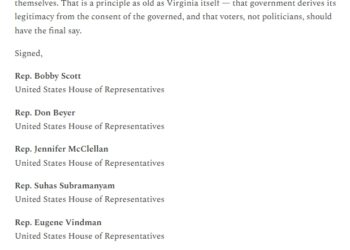
Have you ever been on a college campus and wondered whether the person or persons standing next to you is carrying a concealed firearm? How’d it make you feel? If you’re like me, you feel more at ease when the person standing beside you is unlikely to have a legally concealed firearm on a college campus. According to a recent Quinnipiac Poll conducted in December, the vast majority of Virginians also oppose allowing concealed guns on Virginia college campuses. ODU’s Board of Visitors apparently feels the same way as well.
Those in the “gun’s rights” camp who make the claim that having a concealed weapon decreases the likelihood of another Columbine-type shooting-spree (or at least reduces the injuries and/or deaths) argue their case on speculation and not scientific evidence. Is it in anyway clear, or scientifically verifiable, that allowing concealed handguns on Virginia Tech’s campus would have magically inhibited that school’s tragic shooting incident, for instance, or at least reduced the number of wounded and dead?
Perhaps those who make this “vigilante defense” argument fancy themselves to be considerable marksmen (or women). But for anyone who has ever fired a handgun, you’ve probably realized that hitting a target, especially a moving target under enormous stress, is not as easy as these vigilante defense proponents imply. Thus, the probability of hitting a “noncombatant” in a Columbine-type situation, to my mind, is far too high to risk oversimplification of the difficulties involved.
I like firing my handgun at the shooting range and I enjoy shooting skeet in the country when the season arrives. But there is a time and a place for everything. And when the lives of individuals are on the line, I don’t want my study partner on campus to suddenly turn into John Rambo to potentially save the day. What might happen instead is that he/she adds insult to injury instead.

![[UPDATED with Official Announcement] Audio: VA Del. Dan Helmer Says He’s Running for Congress in the Newly Drawn VA07, Has “the endorsement of 40 [House of Delegates] colleagues”](https://bluevirginia.us/wp-content/uploads/2026/02/helmermontage.jpg)
















